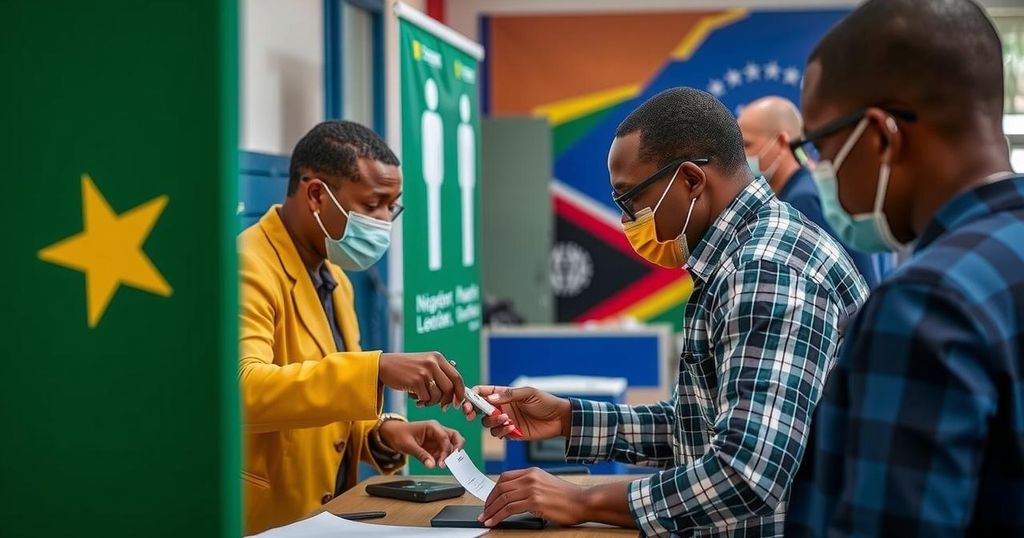Namibia has extended the presidential and parliamentary election voting period to Saturday due to ballot paper shortages and technical issues. The opposition has raised concerns about the legality of this extension, labeling it as potential electoral fraud. The elections are crucial for the country’s ruling party amidst rising public discontent over economic conditions, particularly among the youth.
Namibia’s electoral agency has announced an extension of voting for the upcoming presidential and parliamentary elections, originally set to conclude on Wednesday, now scheduled to continue until Saturday. This decision stems from significant shortages of ballot papers and technical difficulties experienced across various polling stations. The opposition party, the Independent Patriots for Change, has contested this extension, alleging that it constitutes an illegal change to the electoral process, raising concerns about transparency and potential electoral fraud.
The context of this extension unfolds amidst political tension in the region, notably in Mozambique, where unrest and allegations of election manipulation have sparked violence following recent elections. As voters in Namibia navigate long queues and logistical challenges, many remain uncertain regarding their ability to participate fully in the election process. Namibian officials have assured citizens that additional ballot papers are en route. Nonetheless, skepticism persists among voters, many of whom have expressed frustration at the delays and administrative hurdles.
At the heart of these elections is Netumbo Nandi-Ndaitwah, the current Vice President and candidate of the ruling SWAPO party, who stands poised to become Namibia’s first female president if elected. However, her campaign faces a significant challenge from an increasingly disillusioned youth population discontented with high unemployment rates and economic inequality in the mineral-rich nation. Despite past elections being regarded as credible, this electoral cycle highlights mounting social frustrations, reminiscent of a broader trend across the region where traditional parties face growing opposition as citizens demand transformative leadership.
Namibia, a Southern African nation with a history of colonial rule, is navigating its electoral landscape with the ruling SWAPO party, which has maintained power since the country gained independence from South African control in 1990. Historically, SWAPO has been associated with the liberation struggle, yet persistent economic challenges and high unemployment have led to increasing discontent among the populace—particularly among the youth. With around 1.4 million citizens registered to vote, the upcoming elections are crucial for shaping the country’s governance for the next five years. The electoral process in Namibia, once considered stable and credible, is now under scrutiny amidst logistical failures and opposition allegations of impropriety.
In conclusion, the extension of voting in Namibia due to technical issues and a shortage of ballot papers has generated significant controversy, particularly from opposition parties alleging illegal manipulation of the electoral process. As the elections draw closer, disenchantment with the ruling party grows among a youthful electorate frustrated by economic disparity and lack of opportunities. The outcome of this election may have far-reaching implications for the country’s political landscape, which has historically favored stability in a region marked by conflict and political upheaval.
Original Source: abcnews.go.com






